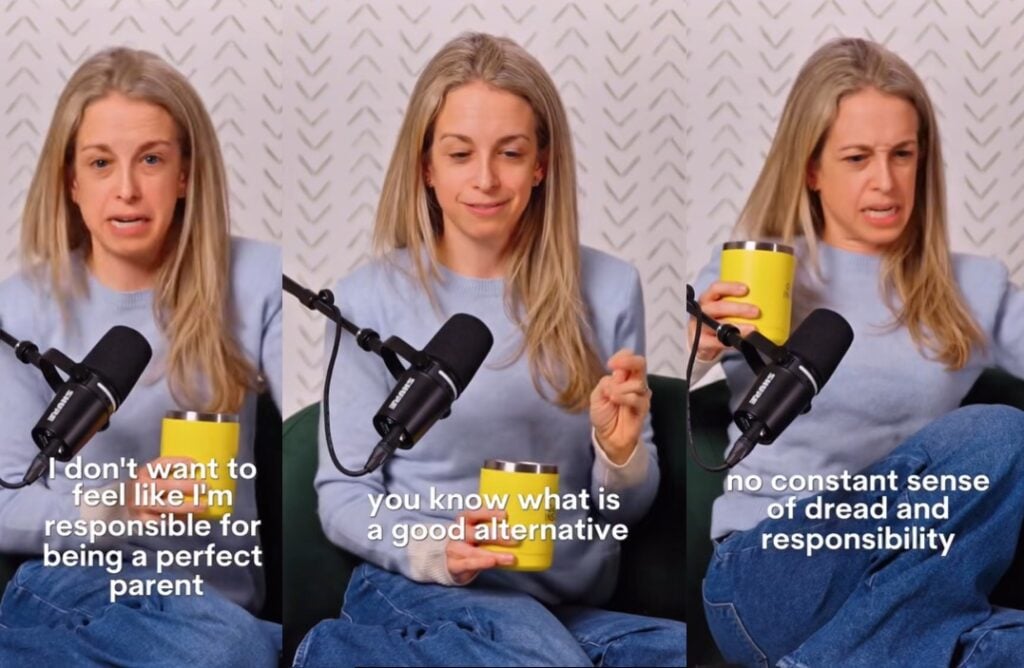
On Monday morning, you had to remind your son twice to grab his coat. On Tuesday morning, he headed out the door without his backpack. There was even a day he forgot his shoes until you spoke up!
Or maybe it’s not forgetfulness, but a daily fight with a kid who doesn’t want a coat, no matter how cold it is outside. Eventually, you get tired and say, “Fine, do it your way and see how it turns out.”
It’s called FAFO parenting, and if you’re not familiar with FAFO, it stands for ‘eff around and find out,’ and one expert is warning that balance is necessary.
Wait, What Is FAFO Parenting?

In common parlance, FAFO means something to the effect of, “Okay, go ahead and do what you’re doing, and the consequences will be all yours.” In some cases, it might be a threat; in others, it’s just an acknowledgement that whatever endeavor is underway, the speaker expects it to turn out poorly.
When we employ that with kids, it means taking a step back from their choices and letting them feel the consequences.
That might mean showing up at school without their homework, being cold without a coat, or not having their favorite jeans because they didn’t do laundry. The ‘consequences’ in question are generally discomfort, disappointment, or even trouble at school.
Dr. Becky Kennedy, whose Good Inside program is designed to help parents navigate such difficult waters, says she can understand the impulse.
There’s Room For Nuance
Dr. Becky says that she feels like the sudden rise in FAFO parenting (which could also be described with terms like “natural consequences” or “learn by doing”) is in response to many parents’ feeling that “gentle parenting, or a perversion of it,” makes them responsible for ensuring that their child never has a hard moment or negative experience.
She emphasizes that parents are overwhelmed, and that it’s okay to allow natural consequences in certain situations, as long as you’re still exercising the parental authority and duty to protect from real harm.
It’s about picking your battles. For example, letting your child run into traffic to learn a lesson about staying on the sidewalk or letting him step on a nail to learn a lesson about wearing shoes outside is off the table, but letting him get to school without his homework because he didn’t put it in his backpack at night is a solid maybe.
Dr. Backy goes into much more detail about this on her podcast, where she digs into the effects of FAFO parenting on kids, which also has more nuance than you might expect!
When Is FAFO Parenting A Good Plan?
Her view is that intentions matter.
Dr. Becky uses the forgotten homework example to explain the difference.
Imagine a situation in which, every night, you tell your child, “Put your homework in your backpack,” and every night he says, “I’ll get it in the morning,” and every morning, you remind him again.
If your response is to plan a ‘gotcha’ in which you’ll enjoy your child’s misery when the morning that you skip reminding him is the day he has the most important assignment due, or imagine smug “told ya so” moments, you’re damaging the trust your child has in you.
If, by contrast, your response is to recognize that putting the homework folder cannot be your job forever, and you want your child to learn that responsibility, you can have a different outcome.
You might tell your child, then, “I’m not going to remind you of your homework in the mornings anymore. If you get to school without it, it will be your responsibility,” and then stick to that boundary.
The actions sound almost the same, but Dr. Becky says, “Kids feel our intention more than our intervention.”

